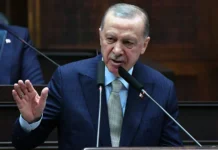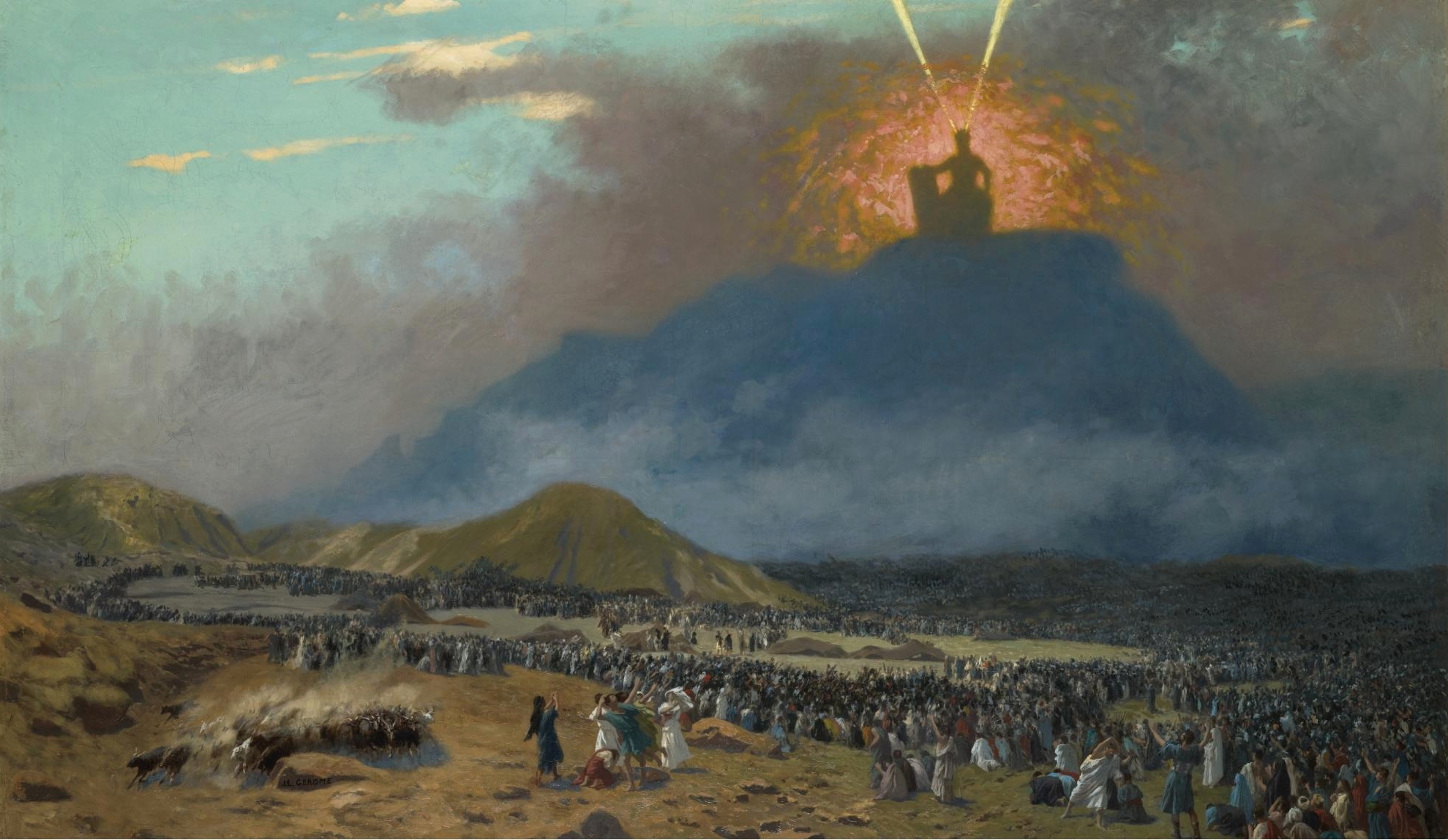The first word in our Parasha is “Va’etchanan” “וָאֶתְחַנַּן“ (and I begged), signifies a fundamental change in Moshe’s demeanor and harsh reality. Moshe humbly asked HaShem for something that his whole existence was based on from day one, entrance to the land of Israel. All he ever wanted was to enter Eretz Hakodesh, the Promised Land. In the last thirty-six days of his life Moshe taught Bnei-Yisrael the Torah in the hope that HaShem will change his decree and allow him to lead Bnei-Yisrael into the Promised Land. Moshe prayed five hundred and fifteen prays, just as HaShem’s Angels do, asking HaShem to forgive him for his sins and let him go into Israel. Our Sages explains that Moshe was asking to enter the land of Israel in order to make the Mitzvot one can only make in Israel.
Moshe believed that since he won the war against the kings Og and Sichon, HaShem perhaps will change his mind but he was wrong. HaShem was hoping that Moshe would accept His decree and only after five hundred and fifteen times Hashem finally explained to Moshe why he will not be entering the Promised Land.
The numerical value of the word “Va’etchanan וָאֶתְחַנַּן“ is 515, alluding to the 515 prayer Moshe prayed to HaShem. The word “Va’etchanan“ also means that he prayed and asked to receive something for free, as it comes from the word “Chinam” (“חינם” – free). The word “Chinam” (free) has a profound teaching when referring to truly being free of all. In Parashat Ki-Tavo (“כי תבא“) the Torah lists all the ninety-eight curses HaShem warned Bnei-Yisrael about if they do not keep Torah and Mitzvot. The last curse is the most devastating of all; “being sold as a slave”. Bnei-Yisrael suffered such devastating “slavery” many times in the past by Egypt, Rome, Greek, Persia, Spain, Russia, Germany (and many others) due to our sins.
Only after getting back to HaShem and the Torah, they were saved from such slavery and HaShem won their wars. In Shemot 21:2, we read about a slave “in the seventh will go out free” (“ובשבעית יצא חינם”), meaning both on Shabbat and the seventh Tikun we are free. The word free here means without liability, and the numerical value of the word ”חינם” is 98, same number as the ninety-eight curses. When we are with HaShem, we are truly free of these ninety-eight curses. Moshe proclaimed HaShem as the King in order to convince Him to change his decree, siding the many times HaShem changed his decree for Bnei-Yisrael after they sinned, in part thanks to Moshe. Moshe mentioned several examples of HaShem threatening to eliminate Bnei-Yisrael after they sinned, yet he changed his mind. Moshe was hoping that this can happened to him as well, and that HaShem will cancel his decree. Moshe tried so many times, yet HaShem would not change his decree. HaShem told Moshe that just as the old generation of Bnei-Yisrael, as well as his siblings, passed in the desert so too he will pass away in the desert. HaShem explained to Moshe that all this was in order for him to lead Bnei-Yisrael into the land of Israel in the days of Mashiach.
Moshe, who was the biggest Tzadik and most beloved by HaShem, did make few “mistakes” in his life that prevented him from entering the land of Israel. We should learn from such a lesson how HaShem is stricter with the most righteous people, so with us it will be even worse. Meaning we must do all that we can to never sin, as HaShem holds all of us to the highest strictness. Moshe had several sins and the Torah lists them all in different Parashot. The Zohar explains that HaShem wanted to “stay behind” and in the times of redemption he will lead the generation of the desert into Israel in days of Mashiach and resection.
We know of several sins that HaShem punished Moshe for:
- Moshe took it upon himself to kill the Egyptian slave-master who beat the Hebrew worker.
- Moshe was introduced as an Egyptian (by Tziporah) while meeting Yitro and never corrected that wrong assumption. HaShem told Moshe what Yosef did when he was in prison.
- Moshe spoke ill of Bnei-Yisrael while at the Burning-Bush event, assuming that they won’t believe him and HaShem.
- Moshe hit the rock instead of speaking (teaching Torah) to him as HaShem instructed.
- Moshe first refused HaShem’s order to be the messenger to free Bnei-Yisrael from Egypt, as he volunteered his brother Aharon for this task at first (out of respect to his older brother).
Moshe understood all the sins he committed, yet he kept asking HaShem to change his decree just as he asked HaShem to forgive Bnei-Yisrael after the Golden-Calf sin. HaShem originally said that he is going to annihilate Bnei-Yisrael but Moshe begged him to change that decree which HaShem did. Moshe asked HaShem to allow him at least to enter the land of Israel and see the “Good Mountain”, meaning Jerusalem and the “Levanon”, meaning Beit-HaMikdash. The numerical value of the word “Levanon” (“הַלְּבָנֹן”) is the same as the word Kabbalah (“קבלה”), alluding to HaShem’s teaching Moshe more while his was on top of the mountain as he will then give to Yehoshua. HaShem refused and Moshe asked at least to let him die in Israel, or even to just be buried there. Again HaShem refused and explained to Moshe that he must stay behind and bring Bnei-Yisrael back in days of Mashiach. Moshe tried to justify his request to be buried in Israel as he equates it to bringing Yosef’s bones to be buried in Israel. Again, HaShem refused.
Hashem finally said to Moshe “enough” “ וַיֹּאמֶר יְהוָה אֵלַי, רַב-לָךְ:”, meaning He will not change His decree and ordered Moshe to stop asking. HaShem told Moshe that if he changed his decree Bnei-Yisrael will be delayed entering Eretz Yisrael. Moshe, who always had Bnei-Yisrael’s interest ahead of his own, stopped praying for himself. HaShem shared with Moshe his future rewards in the world to come and asked him to ascend and climb to the top of a Mountain where HaShem showed him the land of Israel. HaShem actually took Moshe to a higher spiritual dimension and showed him the future of Eretz Israel form the first Temple to the second, from the entrance of Bnei-Yisrael all the way to Rabbi Akiva, a period of over 1300 years. That is why it said “see for your eyes that you cannot cross the Jordan” (“וּרְאֵה בְעֵינֶיךָ: כִּי-לֹא תַעֲבֹר, אֶת-הַיַּרְדֵּן הַזֶּה”). HaShem showed Moshe that the nation is not ready for the great revelation of light that would be revealed had Moshe entered the Land.
The Zohar says that when HaShem said to Moshe “go to the top of the mountain”, “lift your eyes… to all directions”, there were two elevations, one physically (to the top of the mountain) and then spiritually (lift the eyes to all directions) to the heavens. If you climb to the top of the mountain to see the land that you cannot enter, then you can look toward two or three directions but if you look toward all directions then you are already in. Moshe saw 1300 hundred years ahead and while seeing Rabbi Akivah, he said to HaShem that Rabbi Akivah should have been the one to receive the Torah and not him. While seeing the vision of Rabbi Akivah, he heard Rabbi Akivah saying to all his twenty-four thousand students that all came from Torat-Moshe, meaning from Moshe’s Torah. We learn from our Sages that many righteous people did not merit going to the land of Israel same as Moshe. Many righteous people that lived outside the land of Israel were not allowed to come to Israel because of a similar reason Moshe was denied entry.
According to the Zohar great righteous people could “flip the switch” before the people of Israel are ready for Mashiach and bring on redemption; the Baal Shem Tov was one. The Arizal came to the Land of Israel only for a short time in order to transfer knowledge to Rabbi Chaim Vital, and when he tried to reveal greater light, his son became ill and died. As we know, the Arizal died at the young age of 38. If he were to reach 40, he could have “turned on” the switch and bring the final redemption to Bnei-Yisrael.
The Torah only mentions the two nations of Eisav and Yishma’el (“מִשֵּׂעִיר” and “מֵהַר פָּארָן”). According to Kabbalah these two nations were to be the future dominant powers in the world, Christianity and Islam, as it is written “The religion of the wood (cross) and the religion of the Stone (mecca). The majority of rest of the seventy nations will come under the influence of one of these, as it says (Devarim 4:27-28 ):
“And HaShem shall scatter you among the peoples, and ye shall be left few in number among the nations, whither HaShem shall lead you away. And there ye shall serve gods, the work of men’s hands, wood and stone…”
HaShem ordered Moshe to prepare Yehoshua to take over the leadership. Moshe asked HaShem to at least allow him to fight the thirty-one kings in the land of Israel but once again HaShem refused. Realizing that HaShem is not going to change His decree, Moshe started reciting the thirteen attribute of HaShem’s mercy:
- God of mercy, before a man commits a sin
- God of mercy, after a man commits a sin
- Almighty HaShem of the universe, Ruler of Nature, and Mankind
- HaShem is full of affectionate sympathy for the suffering and miseries of human frailty
- Assisting, helping and consoling the afflicted and raising up the oppressed
- Long suffering and slow to anger
- Abundant in goodness i.e. granting His gifts beyond the deserts of man
- VIII. True to Himself and speaking the Truth in love
- Remembering the good deeds of the ancestors for a thousand generations
- Bearing with indulgence the failings of Man; and also
- Man’s evil deeds springing from malice and rebellion against God; and also
- Man’s shortcomings due to heedlessness and error
- XIII.HaShem will not allow the guilty to pass unpunished but visits the iniquity of the fathers upon the children unto the third and fourth generation of them that hate Him.
The question was asked why the Torah did not begin with the giving of the Ten Commandments. Our Sages explain that Bnei-Yisrael would not have understand them nor be able to fulfill them. HaShem created everything from day one for Bnei-Yisrael, just as the acronym of the word Beresheet stands for “First HaShem saw that Israel will receive the Torah” (“בראשונה ראה אלוהים שישראל יקבלו תורה”). Moshe explained each of the 613 Mitzvot and their Divine purpose. He explained to them the power of keeping each Mitzvah and how HaShem will forever reward them for doing so, both in this world and in the world to come.
Out of the 613 Mitzvot, 365 are negative commandments, such as “do not kill”, “do not steal“, etc. These 365 Mitzvot also represent the Jewish calendar. Amazingly our body has 613 parts to it; 248 organs and 365 ligaments, each connected to a Mitzvah. The whole prayer of “שְׁמַע, יִשְׂרָאֵל ” has 248 words and exactly 1000 letters. Just to let you know the power of this prayer.
Moshe chapter 6:4 Moshe recited the “Shema” (“שְׁמַע יִשְׂרָאֵל “) just as when Yaakov asked his sons if they are united using both of his names, Yaakov and Yisrael. Yaakov did that to bring back the ability for both types of physical and spiritual blessings. He asks them are you all united as one nation under one god/HaShem? The ten brothers answered:
“שמע ישראל אדוני אלוהינו אדוני אחד”
Yaakov יעקב was happy and answers them:
ברוך שם כבוד מלכותו לעולם ועד


























